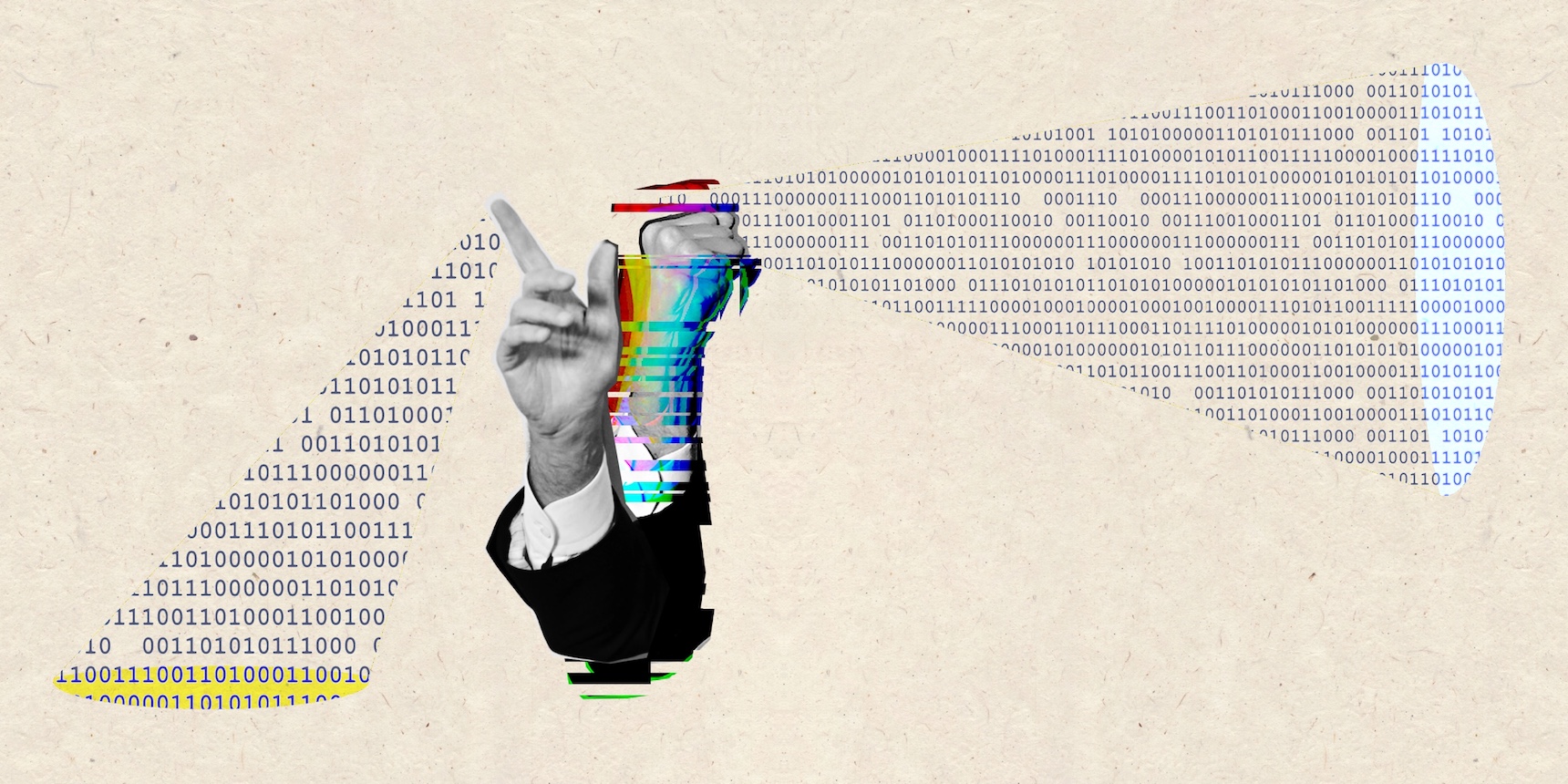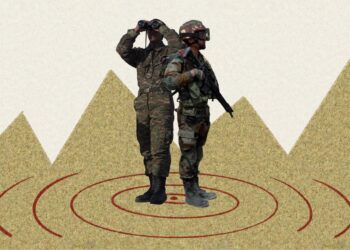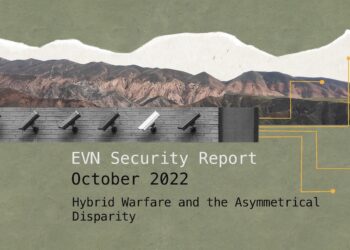
In March 2022, Turkish outlet Haber Global concocted an allegation that Armenia gave all four of its SU-30 fighter jets to Russia, which already had over 100 fighter jets of different types, to use against Ukraine. The Armenian Ministry of Defense immediately refuted the false claim and hosted military attaches of EU and NATO member states on a visit to the Erebuni air base to show that the jets were, in fact, in Armenia.
Still, observers with ties to Azerbaijan or who disseminate pro-Azerbaijani standpoints, including a right-wing U.S. commentator and a Ukrainian analyst, spread the story on Twitter, where it gained traction, provoking a virulent, if short-lived wave of anti-Armenian sentiment online.
False claims to malign Armenia in international public opinion, with origins in Azerbaijan and Turkey, are not new. Online, however, they have only accelerated, especially since Azerbaijan’s and Turkey’s renewed aggression against Artsakh Armenians in 2020.
Autocracies have been exporting disinformation digitally to target global audiences for some years. Russia and China might come first to mind as the main purveyors of international disinformation, but other countries, in particular Saudi Arabia and the United Arab Emirates, are already more prolific than Russia. Now, Azerbaijan is emerging as another source of online disinformation that targets foreign audiences.
The West however, has been slow to acknowledge the deleterious impact of this behavior for regional stability and social media companies don’t prioritize harm from malign state actors when the disinformation they purvey on their platforms does not directly impact Western interests. Azerbaijani trolls on Twitter have repeatedly been ignored, for example, while networks of other state actors’ bot armies have been taken down.
This is dangerous as it allows a space for autocratic regimes who are used to suppressing freedom of speech at home, to use social media as a tool of disinformation and of intimidation and harassment abroad. Autocratic behavior transgresses state boundaries and proliferates transnationally and the digital information sphere then becomes a space not just for the spread of disinformation but also of authoritarianism.
This is about much more than individual state actors sowing false narratives –– this is about the broader threat of digital authoritarianism to democracies. It is autocratic states using deception and artificial suppression of independent voices at home and through manipulation of public opinion internationally –– with the ultimate goal of maintaining regime resilience.
It should come as no surprise that Azerbaijan, along with Saudi Arabia and the UAE, is among the biggest customers of NSO, the Israeli firm that produces the spyware Pegasus, which is used to target activists, journalists, and academics at home and abroad. Marc Owen Jones, an Associate Professor at Hamad bin Khalifa University and author of Digital Authoritarianism in the Middle East, calls this “spyware diplomacy” and, he argues, it comes with better ties between Israel and other countries, which, together with a shared conception of security, will bolster digital authoritarianism. At the very least, what is an economically driven calculus by Israeli firms is then translated into a broader transnational structure of organized oppression by authoritarian regimes.
Autocratic Need for Disinformation and Propaganda
Like all autocracies, Azerbaijan is bad at governance. In order for it to legitimize itself among its citizens, it has to rely on propaganda. Propaganda, however, does not work in environments with vibrant civil societies and public discourse that constantly challenges and fact checks false claims and misconstrued facts. This is why autocrats intimidate, jail, torture and kill journalists and dissenters –– to neutralize divergent views and clear the information space of counternarratives. It’s why Azerbaijan abused Facebook to shut down its opposition — something executives at Facebook were slow to address.
Once a threat to autocracies, free information flows are now being exploited by dictators to further their goals. While one main tactic of theirs is surveillance, another extremely harmful and less acknowledged tool in their toolkit is turning common political knowledge into contested knowledge. Internally, the stability of regime’s like Aliyev’s, Putin’s, or Mohammed bin Salman’s requires that the public not know which groups and events are real and which are manufactured by the state.
Lack of consensus around basic political realities makes people unsure about who is really behind a political alternative or what interests it could be representing – thus becoming a significant obstacle to such a force ever gaining popular support. Consensus around public knowledge and an informed citizenry are two of the main bulwarks against propaganda. Social movements are not only undermined through imprisoning or killing activists –– they are also sidelined through lack of credibility which the state can manufacture by distorting basic political realities.
Given the Azerbaijani state’s Armenophobia as a world view, dissidents in Azerbaijan are cast as Armenian, pro-Armenian, or belonging to a shadowy “Armenian lobby”. Human rights organizations that may highlight Azerbaijani human rights abuses against Azerbaijani dissidents or Armenians POWs are also Armenian. In this way, all independent voices can be cast as representing a hostile external force. Thus, the distortion of reality is a robust part of Aliyev’s toolkit in implementing genocide and ethnic cleansing against Armenians. The intricate relationship between Aliyev’s regime survival and anti-Armenianism is made possible through digital authoritarianism, and the justification for aggression against Armenians hinges on the dividends this pays to Aliyev’s regime stability.
While autocracies may spend more resources on internal propaganda––autocrats are, of course, rarely overthrown from the outside––they also understand that regime strength is achieved through reaching foreign policy goals. They know that strategically projecting disinformation externally to global audiences can influence policy decisions, in particular in the West, in their favor.
Indeed, better known purveyors of international disinformation have proven this. Russian trolls bought more than $100,000 in ads on Facebook during the 2016 U.S. presidential elections in a campaign now seen to have actually influenced the vote in Trump’s favor. China uses its global network of Confucius Institutes, which is already threatening academic freedom, promoting propaganda of the Chinese Communist Party, and stealing intellectual property from U.S. taxpayer-funded research. Dubious accounts originating in the UAE coordinated a disinformation campaign on Twitter that drowned out authentic Tunisian voices around Tunisian politics. Similarly, Azerbaijan attempts to influence external audiences to achieve its foreign policy goals by using troll farms, mirroring propaganda on social media, Western PR companies to whitewash human rights abuses, and by funding academics in western institutions to legitimize its propaganda.
This has important implications for security. Healthy public debate, especially around such pressing issues as war and peace, is not possible if narratives are dominated by one major autocratic state –– that is the point. The goal is to muddy the waters of legitimate dialogue, amplify perspectives that may not have organic traction, and allow specific actors to insert their desired policy positions in the public domain in a misleading way.
The Stakes
From a transformative perspective, it is becoming more important that malign state behavior in the digital sphere is documented, exposed and analyzed. Azerbaijan is now a member of the truth-hostile states along with digital superpowers Russia, Saudi Arabia and China –– this needs to be acknowledged, condemned and addressed. The alternative is to leave the integrity of the digital public commons undefended, contributing to its continued decline.
The stakes are real. Azerbaijan has been escalating its aggression against Armenia after the 2020 Artsakh War, most recently invading it in mid-September 2022; it is currently occupying 127 square kilometers of Armenian territory. It must be acknowledged that this kind of physical aggression is facilitated and made possible to a significant degree by the online disinformation that legitimizes and justifies it.
The contemporary information environment is extremely conducive to hostile disinformation campaigns meant to manipulate domestic and foreign populations and it is reshaping the power balance between democracies and autocracies. As Azerbaijan’s case shows, it can also serve as a disruption of national information ecosystems that degrades digital sovereignty, facilitating irredentist behavior that erodes physical sovereignty.
Magazine Issue N23
N.E.W.S.
Armenia and India: Shared Values and Threats
Intensified military-political cooperation marked the beginning of a new chapter in Armenia-India relations. Political scientist Georgi Asatryan writes that it can have significant implications for the balance of power in the post-Soviet region, particularly the South Caucasus.
Read moreRussia, Turkey, China and Iran: The Return of Empire
Once thought to be a problem solved by the collapse of empires in 1918, and of colonialism in the 1950s and 1960s, the concept of Empire has been resurfacing recently, propelling the world toward a model of domination.
Read moreSee all Magazine Issues here
New on EVN Report
EVN Security Report: October 2022
The security context for the month of October can be better understood as the changing configuration between Armenia’s implementation of its diplomatization-of-security doctrine against Azerbaijan’s multi-tiered hybrid warfare doctrine.
Read more




